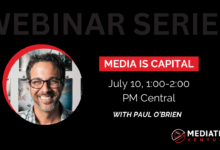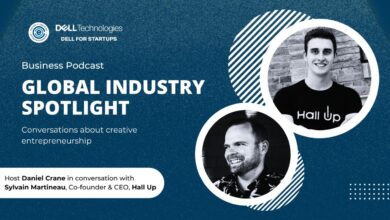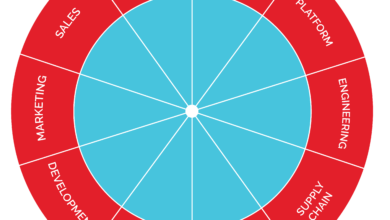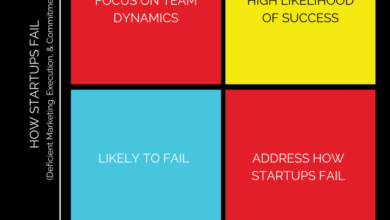I Have a New Idea for a Product…

“What is the first step I should do/first person I should meet in order to start turning the idea into a real product and become ready to market it?”
You can tell we’re in a bit of recession because the introductory questions flourish again – how do I become an entrepreneur, what does it take to start a startup, and this one too frequently asked in too great a variety of ways: I have an idea…
That context added always makes me cringe, “how do I create the product so I can then market it.” We really need to, please, reach our educators in early education (k-12) to set the record straight about marketing and how to start a business. I’ve worked with startups for a long time, and I can tell merely by the question asked, and the way it is asked, that such a person asking going to struggle. I want you to not struggle, so I want you to burn this in your brain: the idea is worthless. It’s wrong and it’s not unique. What is the mission and opportunity in developing a solution to a problem? And what have you done about it?
If you can change your mindset, you have a shot at success. If you can’t, won’t, or you think I’m wrong, you will fail.
To find and attract (think dating) a cofounder, you have to start talking a lot about what you want to and are doing. This is how you network and meet others; this is how others help you find matches.
What’s the first thing you do? You start talking openly about the idea, target 500 people. Random people, at coffee shops — not customers or friends!! Join us in the community and just post what you have in mind!
Talk to 500 people. Pitch the idea and then for the most part, keep your mouth closed: don’t sell, defend, don’t explain, and don’t justify. Listen. Listen to all their reservations, confusions, disagreements, and concerns. DO NOT TRY TO BE RIGHT AND DO NOT CORRECT THEM! Shut your trap <3 Listen.
They’ll give you all the things you need to overcome in order to make something like this work. And out of so many conversations you’ll also find some support, some customers, and maybe some team members.
You seem uncomfortable or unwilling to do that.
I say you seem unwilling to do that because in my experience, odds are that you are unwilling – we go to far too many meetups and networking events where someone saying hello adds, “Eh… I can’t tell you too much, I’m still working on the idea.” Share the idea, ask for advice or introductions, and listen. You MUST break that fear and that tendency to do otherwise. Ideas are worthless, patents won’t protect you; not talking about it effectively means you go nowhere. Start talking, people can only help you when you tell them more than “an idea”
Let me let you in on a little secret, your *idea* is worthless, and assuredly, being tried, or has been tried, many times already. (If you’re bold, try to prove me wrong and share it; I’ve never heard a unique idea).
Next, you have to be attractive to potential Advisors, Partners, and Cofounders. You need a team to do this, and you can either HIRE people and just pay them, or you can build a team. And saying you have a great idea, to a potential cofounder, is like saying, “I have a great idea! Let’s get married and have 6 babies!” to your blind date. Um… No.
What VALUE have you created for them?
Your job as the non-technical founder is creating MOST of the value, and if you’re here with this topic in mind, I can presume you haven’t focused on creating the most value — evident in exploring this topic – since good advisors, and homework about your industry and competitors, would unveil much of what I’m sharing with you now.
Noted economist Peter Drucker once shared for a reason, that Marketing creates the most value in business.
So, what do Startup Founders with No Technical Skills do? That work, starting now:
- Market validation
- Determine price sensitivity
- Develop lead sources
- Aggregate customer lists
- Foster a brand
- Market research
- Competitor analysis
- Raise capital
- Nail down your sales pitch
- Attract talent
- Design wireframes
- Test user experiences with focus groups
- Build mockups
- Identify and open doors to partners
- Build a website
- Grow your social marketing channels
- Start a personal blog that serves your company
- Work out the pro forma financials
- Draft various business models
- Test customer acquisition channels (and costs)
Do the work of building a business and developing a market – without one, the investment in technology is pointless (and rather insane).
And that word, investment, is how you think about creating value for an early team. *They* will be investing in YOU and this venture – is it worth it?? You have only an idea, no one invests in ideas.
Investors invest in opportunities. What is the opportunity here? What VALUE have you already created? What’s in it for them? Where might you find the people who WANT to invest their resources in such things? And what *greater* return will they get back?
That list: the content creation, social media, and landing pages, the talking to hundreds of people, that is how you find Product Market Fit. The advisors and team members that should join you (if this is a good idea with value you’ve created), are evidence, traction, that there is a thing here worth merit — that is the start of Product Market Fit (don’t build anything until you’ve done all this). Need help? Ask!







Thanks for sharing. I agree that execution is what counts in a startup.
This! Paul O’Brien is bringin the goods again! Lots of valid points in here! I whole heartedly agree that there needs to be more teaching/learning to young kids about how to start a business. My 13 year old son came to me yearly this year and said, “Pops… I want to make money for my car fund. How can I start a business?”. We then discussed his skill sets, compared those to needs in the community and looked at areas where he could provide VALUE to start and grow his business. I suggested he talk to our neighbors and ask them if there are odd jobs that they frequently need help with. Further, to look on sites like Nextdoor and make a list of jobs that people are frequently looking for then insert self into that niche.
The long and short is that ACTION is what makes things happen. Dont be afraid to voice your ideas, feedback is critical to success in most everything we do. Dont be afraid to fail! And listen to every person you talk to; every single person can teach you something! Keep learning, keep moving forward!
What concerns me in that long and short, and teaching the skills, is that it doesn’t take much – so why are our schools failing (unable)? And what more can we do to change that.
It seems, rather than the School level, or Board of Education or some such, we need to help Houghton Mifflin Harcourt, Pearson, and such companies that create the curriculum and content that is taught in schools, to learn from more of the people *doing* the work. We all know the pace of change is accelerating and so beyond Reading, Writing, and ‘Rithmetic, if we’re going to raise a generation capable with technology and business, we have to change how the curriculum is maintained.
Great point! From a BOE perspective, trying to increase or enhance standards is typically stifled with a lack of increased support and capacity building. There has to be a better way! To your point, an external approach may be the best way for change.
I didn’t make it through your entire article but wanted to comment on the VC, Startup, Pitch contest 500 presentations!
I had 7000 +/- followers on LinkedIn before Bill Gates (my home state of WA.) bought it.
All I got from pitching, meeting VC’s at coffee shops and gala’s after massive international conferences was my ideas stolen time & time again. University’s, Utilities, OEM’s banks & Trump’s (NAPW) stalking me in 2011
I pivoted to create a secure way to protect you IP even in Open Source community